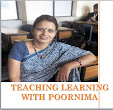Five Phases of Education
Children are like young saplings
and pass through various stages when they need different sort of tending and pruning. They should be treated differently at all the stages. The process of getting
education can be classified into five phases.
The first phase is for the ignorant kids (1-8 yrs.), second phase is for
the impatient adolescents (9-16 yrs.), the third phase is for the energetic
youths (17-22 yrs.) and the fourth phase is for the career building age (23-30
yrs). The last phase is for the mature and elderly people as education is a
continuous process of evolution and unquenchable thirst for knowledge.
The
first phase is best suited for moral education. Innocent and ignorant child
imitates everything and blindly follows his immediate society and his mother is closest to him for blind follow-up.
In this age we can easily instil the essential values in the child by
just making him cram the values and habits along with alphabets, tables and
other basic things. We can make him learn the ideal list of dos and
don’ts. This is the responsibility of
everyone around him (parents, family, society, school and other influencing
agents) to give him the right atmosphere, conditions and inspiration. He
imitates what he perceives in his close world. The parents should customize
their behaviour and regulate their habits so as to present a guideline before
the child. A beautiful life is in your hands and you are to give it a beautiful
heart and a worthy persona.
Second
phase needs the education of discipline and culture. An adolescent comes across unwelcome turmoil
of emotions and senses. Education of discipline may set the emotional turmoil
to an end. We should encourage him to develop self-discipline and allow him to
manage all his things himself. Education of culture is the second most needed
thing in this age. Parents should have a healthy culture of their family and
inspire the children to abide by it. The subjects like History, Civics,
Sociology, Philosophy and Political Science help him cultivate a culture in the children. They
should not only read about their culture but also have faith in it so that they
may not get easily persuaded by the foreign influences which are spoiling them
as they don’t suit the present Indian society and mind set-up. They should be
encouraged to read Indian epics like Ramayana, Mahabharata, Gita etc. which help them
choose the right way when caught in dilemma. Religious scriptures sound
profoundly even the ethics of war while now we say that everything is fair in
love and war, that’s why in today’s world everyone is caught in the adverse
winds of deceit, dissatisfaction and desperation.
Third
phase is the age of career building. It is divided in two stages. In the first
half the youth should be given an insight before deciding his future. The youth
should know himself and his pursuits. The children should study subjects of
their interests and take up the courses of their inclination not the subjects according
to their career options. They should choose the subjects of their interests and
then decide their career, not the vice versa. If they choose the subjects and
courses of their interests and then pursue the careers accordingly, they will
certainly do good whatever they become in life. We should give at least twenty
years of our age to education only. In
the second half of this stage the students should start pursuing their career after
finding out their interests rather than first deciding their career option and
then choosing the courses and disciplines according to that career option. Here is suggested
that the parents should not force their children to pursue career of their
interest and ambition. Youth means energy and energy should be guided into
right direction and for the noble purpose. Youth should be persuaded by the
teachers to read good literature which can bring emotional stability, sensual
purgation and even the answers to the most difficult puzzles of young age. Healthy education works as a firm foundation
for building a sound career. Now, he should set priorities in his life and
right education enables the children to know what they want in their life and
thus choose their career.
In fourth phase one should realize
his responsibilities towards his family, society, nation and the world.
Education of KARMA helps a man to realize the dignity of work and applying the
knowledge in his life. The principles of
Karma help us find the answers to the dilemmas of life – family vs. career,
love vs. family, values vs. money, duty vs. temptations, love vs. ambition etc.
In fifth phase we should learn to accommodate with the new generation and bridge the gap to remove the differences and reduce the distance. We should give them the book of our experiences to read and let them write their own book. We should give the children our spectacles of experience but should not try to lend our viewpoint as some wise man says, “Teach your children how to think and not what to think.” They should see the beautiful world with their eyes only and have their own perspective so that one day THEY MIGHT PAINT THE WORLD IN THEIR OWN COLOURS.
In fifth phase we should learn to accommodate with the new generation and bridge the gap to remove the differences and reduce the distance. We should give them the book of our experiences to read and let them write their own book. We should give the children our spectacles of experience but should not try to lend our viewpoint as some wise man says, “Teach your children how to think and not what to think.” They should see the beautiful world with their eyes only and have their own perspective so that one day THEY MIGHT PAINT THE WORLD IN THEIR OWN COLOURS.
-
Poornima Singh

No comments:
Post a Comment